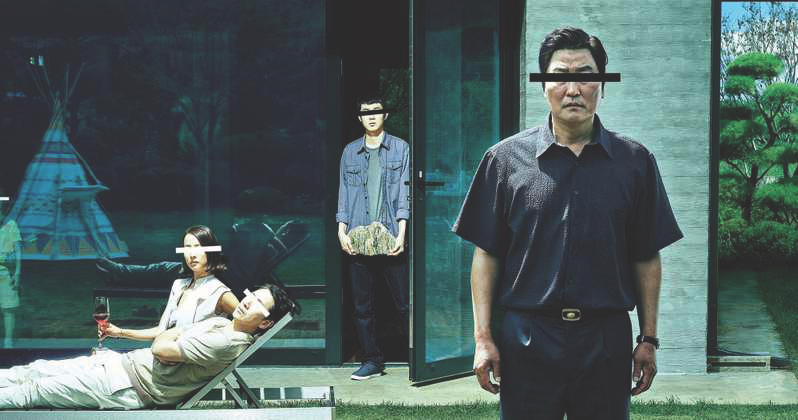
Parasite
is a veritable hit. Having recently crossed $100 million at the international box office, the film now qualifies as director Bong Joon Ho’s highest grossing film to date, surpassing his Chris Evans-helmed dystopia
Snowpiercer
from 2013. Opening in three theaters this October, the film landed the highest per-theater-average ever for a foreign language film (and 18th highest per-theater-average of all time) with a $393,216 opening weekend.
Parasite
has been one of the most-talked-about movies of the year since its premiere this summer at the Cannes Film Festival, where it became a surprise winner of the Palme d’Or, the prestigious festival’s top prize.
The film is basking in near-universal critical acclaim, and currently boasts a rare 99% rating on Rotten Tomatoes. This review may run the risk of simply adding yet another voice of praise into the noise, but if there’s any film that deserves this level of celebration, it’s
Parasite
, one of the most rewarding, meticulous watches of the year.
The film sees Bong take a step away from high-concept English-language fare like
Snowpiercer
and his 2017 Netflix film
Okja
and away from spectacular creature-features like
The Host
; Parasite skirts his usual science fiction themes to instead examine the monsters lurking within ourselves and our own homes.
Bong has an uncanny talent for manipulating tone; each scene feels like a master class in atmospheric tension. He strikes a careful balance between crafting a genuine character piece and a home invasion thriller, taking a complicated meditation on toxic class relations and dressing it up as a smart, entertaining genre piece.
It’s the kind of film you need to see in a dark theater on a big screen, if only to allow yourself to sink into its story as completely as possible. The cast is a true ensemble, with quality performances across the board that each carry the film in their own way. Leading that group is Kang-ho Song, renowned South Korean actor and frequent collaborator of Bong’s, whose final scene-stealing moments are as affecting as they are impressive.
The production design of
Parasite
is virtually unparalleled, with a level of detail and care that pays off in every scene. The centerpiece of this achievement is as an entire mansion set, which Bong and his production designer conceptualized and built from the ground up. Every corner and light fixture is particularly placed to serve the story, and, as cliche as the sentiment may seem, the house itself becomes a character in the film.
Parasite
is unusually difficult to discuss. It is best experienced without spoilers, but many of its discussion-worthy aspects of it are spoilers themselves. Do not let that be a deterrent, however, because it is a film that can be enjoyed on many levels. It is a genuinely fun watch, a rewarding commentary on class structures, and a study in the craft of storytelling through filmmaking.
Parasite
is an earnest and carefully crafted piece of art from a masterful director — the type of achievement that comes around only so often.

















